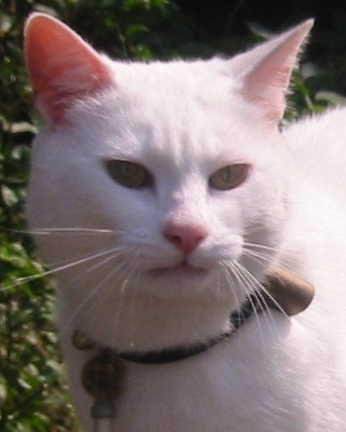Thursday, March 29, 2012
Tuesday, September 04, 2007
The numbers game
As of mid-August 2007, the number of British military casualties (i.e. killed) is on course to be the highest in a calendar year since - and including - the year of the war itself, 2003.
Furthermore, this year, 2007, is already the most costly for 'seriously injured' casualties.
[both stats come from this MOD single sheet]
And turning to Afghanistan,
The number of British military casualties is also on course to be the highest in a calendar year since - and including - 2001, when troops were first sent in.
And, as with Iraq, this year, 2007, is already the most costly for 'seriously injured' casualties.
[both stats come from this MOD single sheet]
These facts - that the rate of casualties is higher than ever - do not figure very highly when the Government reports on progress in these countries. I wonder why.
Note also that the term wounded has been replaced by injured. You can be injured at work, or playing sports, or doing DIY at home. Wounded is what you get on the battlefield, but that is too honest a word to use. Nowadays the wounded are simply referred to as being injured. It's one of those many subtle ways in which we're being told not only what to think, but how to think.
So far, 238 military have died in Iraq and Afghanistan, and 276 have been seriously wounded*. This doesn't count those who have been less seriously injured (i.e. just plain wounded), or mentally scarred. There will be many, many more of those.
The only comparable military operation in recent decades has been the Falklands, which was over within a couple of months, objective accomplished, with 258 killed and 777 wounded. Very soon, in all likelihood before Christmas, the operations in Iraq and Afghanistan will prove to be the most costly in British military terms since the Korean war over half a century ago.
We fought in the Korean War after North Korea invaded South Korea. We fought in the South Atlantic after Argentina invaded the Falklands. We are fighting in Iraq because we started a pre-emptive war, and we're still there 4 years later. Spot the difference.
*this in itself is testament to the good work done saving lives. In wars gone by, the number of wounded was many time higher than those killed in action; these days the ability to save lives in the battlefield has greatly improved, although we mustn't forget this means people having to see out the rest of their lives badly wounded, a not particularly satisfactory outcome.
Monday, May 22, 2006
A new way of looking at familiar things
What really struck a chord as to how technology could affect us was saved until the final few pages: right now the price of vehicle insurance is based mostly on crude demographics. With cars containing ever-more powerful computing abilities, what if you are a safe driver and you allow your car insurance company to have access to data from your car that confirms that? You could pay less (or more) than the person in the car in front. The choice as to driving style would still be yours, but the premium you pay would be based on you and not the group into which the insurance company placed you. Equally, how about your life assurance premium being based on the information your smart fridge imparts? Eat well, pay less. Again, the choice would remain yours, but the price you pay would be specific to you and you alone. Many potential problems with these scenarios, but thought provoking all the same.
Finally, a quote from the book: "Privacy is not an absolute good; what matters is making a sensible trade-off between private and shared interests."
Tuesday, May 16, 2006
Thursday, April 20, 2006
Word of the Day - Puttee
Showing my ignorance, I'd never heard of the word puttee before. Now I know it is a covering for the lower leg, consisting of a long narrow piece of cloth wound spirally, and fastened by a tape. For infantrymen the winding commences at the ankle, but mounted men reverse the process as the rubbing against the khorse causes the tape to come undone. Worn by most armies except the Germans in 1918, they have gradually disappeared form use. The name is adapted from the Hindu patti, meaning 'strip of cloth.' [with thanks to Encylopaedia Britannica]
Giving Blood
If you don't yet give, do consider it. You'll feel good having done so and someone, somewhere, will be truly grateful that you did.
Monday, April 03, 2006
Once - by Morris Gleitzman
I bought this book for a friend's child and over the course of a couple of hours late last night and this morning I read it myself. |
I agree with the readers comments on Amazon.co.uk that this is a riveting read for adults. Gleitzman manages to convey so much meaning (to adults, who know what the book is about) in so few words. I am a bit nervous of the effect it will have on children because it isn't light-hearted subject matter, but I suspect it is a very good way to educate a child about this part of our relatively recent history.
If you get the chance to read the book, please do. It doesn't take long, but it will leave lingering thoughts in your mind for a long time.
